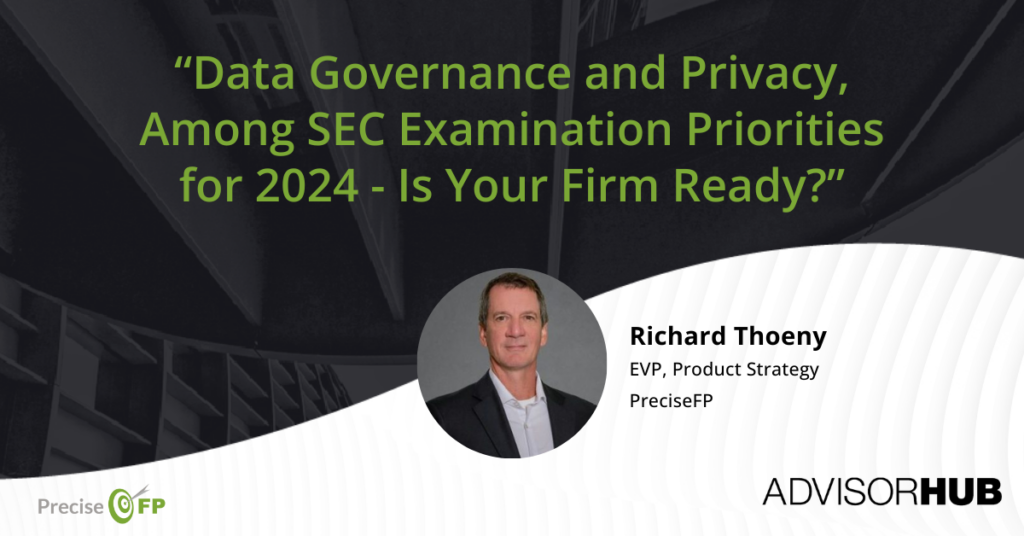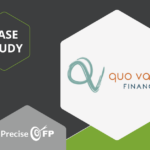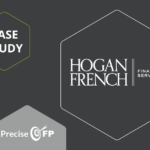I’ve heard it a million times: “Our clients expect us to listen to them as they describe their financial situation. We then transcribe all that they say and then later enter that information into our financial planning software. It’s a white glove approach that high net worth clients expect of us.”
Do they? Do they really expect it? Or have some advisors convinced themselves that their clients expect it?
Just stop and think about how terribly inefficient the above-described approach is. Your client comes to the meeting, ill-prepared as he usually is. You ask him a series of questions that he has never seen before and therefore has obviously never given any thought to prior to you questioning him. And so he fumbles around for answers, admits to not having most of the documents needed to provide many of those answers, and has a discussion with his spouse, possibly for the first time, about some of the wants/needs/goals that they really should have pondered prior to meeting with you.
Think about it. When you go to the Dr’s office for the first time, does the doctor invite you in so that he can take down your address, your allergies, and any meds you might be currently taking? Of course he doesn’t. His time is far too valuable for that. Besides, you are the one who knows the answers to those questions better than anybody else. It only makes sense that you therefore be the one to fill out the medical questionnaire so that your doctor can review the information and dig further for more details where needed.
The real question that begs to be answered, in my view, is what it says about you and the value of your time. If you spend your time transcribing information that your client is providing you with as he shuffles through papers or logs into his work-provided retirement plan account, how is your client supposed to think that your time is valuable? And if you’re time isn’t regarded as being valuable, perhaps your services are being viewed as somewhat less valuable also.
I talk to advisors all the time and I have met some who won’t take on a new client if that client isn’t prepared to invest the time and effort needed to complete the advisor’s financial profile questionnaire. Those advisors tell me that they are not going to waste time with someone who, at the end of the day, costs more to service, since more time is spent not only during the initial data-gathering phase, but every time an update is needed. I also think that those advisors don’t accept clients who won’t provide their own profile information because, let’s face it, who wants to transcribe addresses, family details, account balances, and the like? If a client isn’t willing to do a little bit of homework, then they are likely not going to come prepared for your discovery meeting where absolutely no work was done ahead of time yet, magically, your client is going to have all of the information at his fingertips and will be eager to provide it orally so that you can then perform the transcription.
So, is it typing that the client can’t handle? Are you really just offering a typing service then?
The key to making HNW, and everyone below (after all, you likely will be asked to help out your clients’ even less profitable kids!), comply with your data-gathering needs, is to make sure that the data-gathering experience is a good one. How do you do that? You start by sending your clients questionnaires that fit their unique situation. If your client doesn’t have any children, why would the questionnaire you send them have 3 pages for Family Members details? Similarly, if your client is an executive and you need her to provide details on her stock options, you should include a section in your questionnaire that addresses that (and, BTW, you should probably leave that section out for your recent college graduate clients).
Once you have the questionnaire that best suits your client, you should pre-fill it with information so that your client doesn’t have to start from scratch. You should be able to pre-populate that questionnaire with data from your CRM or financial planning tool, or even from a previous questionnaire that your client completed. The point is, don’t make your client repeat himself. Nobody likes to repeat himself. I said nobody likes to repeat himself. Please don’t make me do that again.
Of course, there are a lot of other do’s and don’ts that I am leaving out like making sure the data is exchanged securely, having a system where the client is sent reminders automatically if they don’t finish the job (this goes back to your time being too valuable to do it yourself), and a bunch of other things that, ultimately, are best left to a system that was designed, from the ground up, with client engagement, and even more specifically, data gathering in mind. Any other system will likely disappoint your client in terms of the overall experience, and will cause you and your staff to spend more time chasing down missing pieces of information, needlessly entering data into other systems, and, heaven forbid, dealing with data breaches and other messy situations that your compliance team would hope that you had protected your clients against by doing the necessary due diligence before adopting the system.
I once saw a thread on a popular advisor forum discussing holiday gifts and how every other profession receives gifts, yet ours gives gifts to clients. Letter carriers, veterinarians, teachers… They all receive gifts. Why then do we give our clients gifts? I would argue that we give gifts because, at some point, we decided that we should give them gifts. Probably because we heard of others doing it. And so, we trained our clients to think that they should receive a gift every year, instead of giving one. Just like many advisors have trained their clients that typing is a good skill to have, but a totally unnecessary one when it comes to updating their financial profile. For that, dear client, we will hold your hand to the point where you are so hands-off that you have as little ownership as possible in the financial planning process. Because we don’t want engaged clients. We want lethargic clients who, at the end of the day, will probably resent coming to your discovery meetings ill-prepared, answering questions that they never had time to think about or gather pieces of data for you to both consider and use in the planning process.
If you belong to the camp who thinks that typing is beneath your clients, I encourage you to challenge that belief by implementing a data-gathering process that puts the client first. You will be surprised at how many clients become engaged in the process and actually enjoy it. Sure, there will be one or two who don’t, but you can always use the old, inefficient approach with them. Then again, maybe like the advisor I mentioned earlier… maybe those handful of clients just aren’t a good fit for your high value, non-transcription providing firm.






